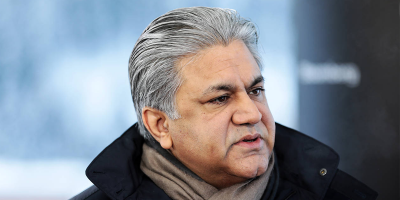There are a few peculiar things about fall of the Abraaj Group yet to be properly addressed. Specifically, the nature of the relationship between the beleaguered private equity firm and its auditor. Using only public sources of information, we’ve put together some questions that investors may wish to ask.
Timeline
The public first heard about problems at Abraaj when the Bill & Melinda Gates Foundation, World Bank’s IFC, CDC Group and Proparco Group accused Abraaj Holdings of borrowing around $200mn of investor money from its healthcare fund.
One of the first to break the story was the New York Times on 2nd February 2018.
Abraaj responded with the following statement on 4th February.
There have been recent media reports on the Abraaj Growth Markets Health Fund (AGHF) which are inaccurate and misleading… All capital that was drawn from AGHF investors was for approved Fund investments.
Investors apparently quickly asked that an auditor with no ties to Abraaj be appointed to investigate their claims. Instead, Abraaj appointed KPMG to verify its own claims.
Abraaj has engaged KPMG to verify all receipts and payments made by the Fund in accordance with the International Standard on Related Services applicable to agreed-upon procedures engagements. This standard is issued by the International Auditing and Assurance Standards Board. We are confident that the exercise being conducted by KPMG will confirm that all the funds were accounted for and used appropriately.
Abraaj could have appointed an unaffiliated third-party to conduct the verification, but instead opted to choose its current auditor, KPMG.
For some reason, Philips comes out on 5th February proclaiming its “long term” support for the fund through a press-release on Abraaj’s website (a rather peculiar move).
By 7th February, the FT and then TheNational reported that KPMG had come back to Abraaj to state:
KPMG has now completed its findings and reported that all such payments and receipts have been verified, in line with the agreed upon procedures performed, and that unused capital was returned to investors.
On 23th February, Abraaj came out with another press release, announcing its reorganization and increased separation between its Holding Company and its Fund Management arm.
12th March sees Reuters report that the CFO and Partner of Abraaj, Mr. Ashish Dave was only too happy to state that he had already resigned from the firm.
“I resigned six months ago to spend time with my family and pursue other opportunities,”
A new CFO had still not been announced at the current time, quite bizarre given given the size of the firm ($14bn+ of assets across dozens of legal entities) and the complexity of its business. For 6 months Abraaj publicly had no official CFO.
By April 15th, Reuters reported that investors “felt the month-long KPMG review, completed on Feb.7, was conducted too quickly and was not comprehensive. Deloitte was subsequently appointed by Abraaj to conduct another review. Investors in the healthcare fund themselves appointed Ankura Consulting, a forensic accounting firm, to investigate.
On 24th May, Bloomberg reported that KPMG was conducting an internal review of its Abraaj audits and their earlier review giving its a clean bill of health. The firm’s UK branch was to review the work done by KPMG Middle East.
On 10th June, Bloomberg reported that Deloitte had revealed to creditors in a report submitted on 4th June that Abraaj had commingled $95mn dollars.
From then on, the situation rapidly deteriorated to the point in recent days where Abraaj has sought a court-led liquidation of Arbaaj Holdings.
Ties with KPMG
Abraaj had a very close relationship with KPMG. So close that its recent CFO, Ashish Dave, jumped back and forth between KPMG and Abraaj several times since 1997. We include his LinkedIn profile below.

It reads as follows, 10 years at KPMG (in the Gulf for the last 4 of those years) , then joined Abraaj as a Partner and CFO for a further 5 years. Then re-joinined KPMG as Head of Deal Advisory, a role closely related to the type of work that Abraaj might conduct with KPMG. After little over 3 years at KPMG, Mr. Dave moved back to Abraaj, again as Partner and CFO.
What we have here is a CFO and Partner of a private equity firm, with a lengthy history of working at the same firm’s auditor. Not only is there a history, but there were repeated transitions back and forth between the two firms.
Without jumping to conclusions, this should be a clear red flag.
But there are more Abraaj executives with ties to KPMG. A former Director at Abraaj had extensive responsibilities including the group’s treasury functions. The same individual was previously responsible for auditing Middle East investment companies at KPMG. Another, Senior Finance and Fund Administration professional at Abraaj was a previous member of the team at KPMG that actually audited Abraaj.
Abraaj may argue that given its size, there’s a not insignificant probability that their team would comprise of at least some ex-KPMG staffers. However, extensive LinkedIn searches reveal that outside of the individuals already mentioned, there weren’t any other ex-KPMG employees at Abraaj. In fact, all ex-KPMG employees at Abraaj had roles confined to internal Treasury/Finance functions, and not part of the deal teams.
Conclusion
We are categorically not accusing anyone of any wrongdoing. We wonder however, whether it’s prudent for an asset manager to hire people who used to work at the same firm (and in one case, the same team) that audited them.
The fact that KPMG came out in early February and said they couldn’t find any fault in Abraaj’s activities, only for Deloitte to then say that was false, is testimony to KPMG’s clouded judgement in Abraaj-related matters.
It cannot be ruled out that having former KPMG executives at Abraaj, weakened the group’s governance regime and impeded KPMG’s professional independence as a service provider.
So, the question we find ourselves asking, is “who’s going to investigate KPMG Lower Gulf”? … other than KPMG London.
In closing, here’s a partial list of KPMG’s recent failings as an auditor in the US and Europe.
- 2018-Jun: KPMG fined $4.3mn in Britain over audit of Quindell
- 2018-Mar: KPMG, Deloitte and BDO fined for improper audits
- 2017-Aug: KPMG slapped with $6.2m fine over oil company audit errors
- 2015-Feb: FRC hits KPMG with £390,000 in fines over ethical breaches
- etc…
We find ourselves fatigued with the ongoing cowboy behavior – even at the heights of the Middle East financial industry. An auditor works for the owner of the capital, not the manager.
As investors, we pay our auditors, but can we trust them?
If you would like to write a story for Baizat.net – you may contact us on baizat[at]protonmail.com. Please include a brief summary of the topic you wish to cover and, where applicable, supporting evidence.





Anonymous
The fact that Ashish Dave moved to Abraaj in February 2017 to resign a few months afterward indicates something was wrong and he wanted to save himself.
KPMG is also involved in the Carillion bankruptcy in the UK.
It is sad that only Western investors were able to uncover this misuse of funds.
Imdad Ali Shah
Hi Arkad
Read your article. Happy to meet in person. I have always mantained a clean track record . Happy to meet in person for coffee. Actually you have given link to my profile so its misleading. But nonetheless you will understand when you meet. I am part of regional team and that also not in position of any authourity so in no way related to current fiasco.
Arkad
As clearly stated in the article, we are categorically not accusing any individuals of anything. Our position is that Abraaj’s governance culture was compromised, vindicated by Deloitte’s findings.